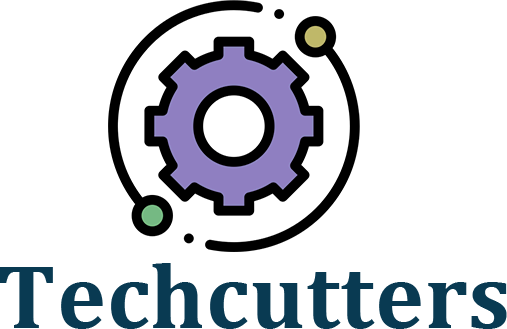Unveiling the Top 10 Essential .NET Developer Skills for Hiring

In the dynamic world of technology, hiring the right .NET developer is crucial for the success of your projects. Whether you’re a startup or an established enterprise, ensuring that your .NET development team possesses the right skills is paramount.
Hire .NET developers to unlock the power of versatile, scalable, and secure application development, ensuring your projects benefit from the proficiency of skilled professionals in the ever-evolving landscape of technology.
In this article, we’ll explore the top 10 .NET developer skills that you should look for when hiring, ensuring you build a proficient and capable team.
What is .NET Development and Why Need It
.NET development refers to the process of building applications, websites, and software using the .NET framework, a robust and versatile platform developed by Microsoft. The .NET framework supports various programming languages, including C#, VB.NET, and F#, allowing developers to create a wide range of applications for different platforms, including Windows, web, mobile, cloud, and more.
Here’s a breakdown of why .NET development is crucial and the needs it addresses:
Cross-Platform Compatibility:
.NET is designed to be cross-platform, enabling developers to build applications that can run on Windows, Linux, and macOS. This cross-platform compatibility is essential in today’s diverse computing environments, allowing developers to reach a broader audience with their applications.
Versatility of Programming Languages:
.NET supports multiple programming languages, with C# being the most commonly used. This versatility allows developers to choose the language that best fits the requirements of their project or the skills of their development team. It also facilitates integration with existing systems and technologies.
Rapid Application Development:
The .NET framework includes a rich set of libraries, tools, and components that streamline the development process. This accelerates application development, reducing the time and effort required to bring a product to market. Features like automatic memory management through the Common Language Runtime (CLR) enhance productivity and code efficiency.
Scalability and Performance:
.NET applications are known for their scalability and performance. The framework is optimized for high-performance computing, making it suitable for developing applications that require speed and efficiency. Additionally, .NET applications can easily scale to accommodate increased user loads and growing data volumes.
Security Features:
Security is a top priority in .NET development. The framework incorporates various security features, including code access security, encryption, and role-based authentication. This helps developers build secure applications and protects them from common security threats.
Top 10 .NET Developer Skills
1. Proficiency in C# Programming:
Adeptness in C# programming is not just about writing code; it’s about understanding the language’s nuances to create efficient and maintainable solutions. A proficient .NET developer should be capable of leveraging C#’s object-oriented features, such as classes, inheritance, and polymorphism, to build scalable and modular applications.
Moreover, a deep understanding of C#’s asynchronous programming capabilities is crucial for developing responsive and high-performance applications.
2. ASP.NET MVC:
ASP.NET MVC provides a structured approach to building web applications, separating concerns through the Model-View-Controller pattern. A skilled .NET developer should be capable of designing robust architectures, defining models for data representation, creating views for user interfaces, and implementing controllers to manage user interactions.
The ability to understand the intricacies of routing, filters, and model binding in ASP.NET MVC ensures the creation of flexible and maintainable web applications.
3. Web Development Skills:
Beyond .NET, a well-rounded .NET developer should possess proficiency in web development fundamentals. This includes a solid grasp of HTML for structuring content, CSS for styling and layout, and JavaScript for dynamic and interactive user experiences.
Web development skills contribute to the developer’s ability to create visually appealing and responsive user interfaces that enhance the overall user experience of web applications.
4. Understanding of Entity Framework:
Entity Framework simplifies database interactions by providing an object-relational mapping (ORM) framework. A skilled .NET developer should understand how to use Entity Framework to model and query databases effectively, utilizing features like code-first or database-first approaches.
This skill ensures efficient data manipulation, reduces boilerplate code, and enhances the maintainability of database-related components in the application.
5. Experience with Web API Development:
Building scalable and interoperable systems requires expertise in developing web APIs. A proficient .NET developer should be well-versed in designing RESTful APIs, understanding HTTP methods, status codes, and authentication mechanisms.
Web API enables seamless integration between different components of an application and facilitates communication with external services, ensuring a cohesive and extensible architecture.
6. Knowledge of Front-End Frameworks:
While .NET primarily focuses on server-side logic, a well-rounded .NET developer should be acquainted with front-end frameworks such as Angular or React. Understanding these frameworks allows developers to create dynamic and responsive user interfaces, enhancing the overall user experience.
Front end development frameworks enables effective collaboration with front-end developers and ensures the seamless integration of server-side and client-side components.
7. Understanding of Azure or AWS:
Cloud computing has become integral to modern software development, and a skilled .NET developer should be familiar with cloud platforms like Azure or AWS. Proficiency in these platforms enables developers to leverage cloud services, deploy applications globally, and manage resources efficiently.
Knowledge of cloud-based solutions contributes to scalability, reliability, and cost-effectiveness in the development and deployment of .NET applications.
8. Version Control with Git:
Collaboration is at the core of successful software development, and version control systems like Git play a pivotal role in managing codebase changes. A proficient .NET developer should be adept at using Git to track changes, manage branches, and collaborate effectively with team members.
This ensures code integrity, facilitates seamless collaboration, and provides a safety net for project rollbacks and updates.
9. Troubleshooting and Debugging Skills:
In the complex world of software development, issues and bugs are inevitable. A skilled .NET developer should possess strong troubleshooting and debugging skills to identify and resolve issues efficiently. This involves the ability to use debugging tools effectively, analyze code execution, and implement fixes promptly.
Debugging skills contribute to the stability and reliability of the application, ensuring a positive user experience.
10. Continuous Learning and Adaptability:
Beyond specific technical skills, the ability to adapt to evolving technologies is paramount. A great .NET developer should have a proactive attitude towards continuous learning, staying abreast of the latest tools, frameworks, and best practices in the industry.
This commitment to ongoing learning ensures that the developer remains versatile, capable of adopting new technologies, and contributing to the long-term success of the development team and projects.
Conclusion
In the competitive realm of software development, hiring skilled .NET developers is a strategic imperative. By focusing on these ten essential skills, you can ensure that your team is equipped to tackle challenges, deliver high-quality solutions, and contribute to the success of your projects.
Empower your team with expertise – Our IT Staff Augmentation Company provides skilled professionals to seamlessly integrate into your projects, enhancing productivity and accelerating success.
Invest in a team with a diverse skill set, and you’ll be well-positioned for success in the ever-evolving world of .NET development.





